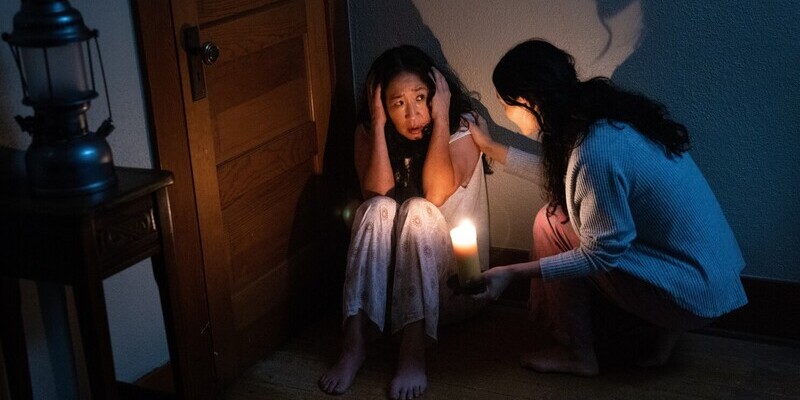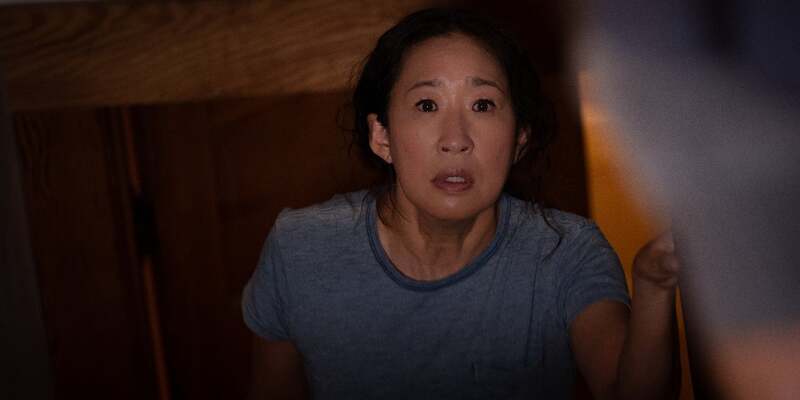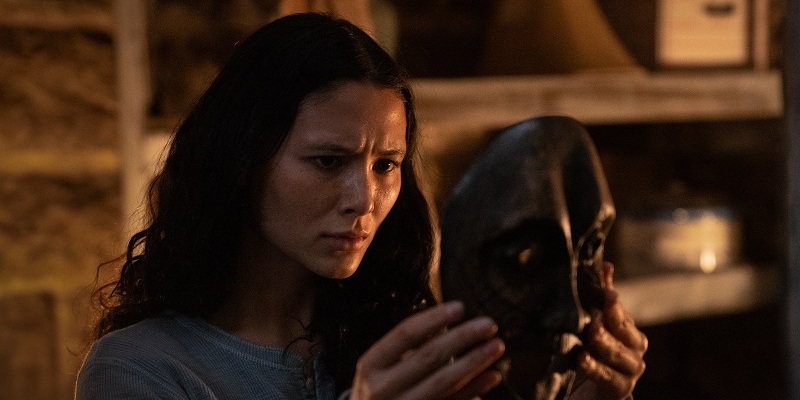
Review by
Eric Hillis
Directed by: Iris K. Shim
Starring: Sandra Oh, Fivel Stewart, MeeWha Alana Lee, Tom Yi, Odeya Rush, Dermot
Mulroney

Everyone seems to believe that overbearing mothers are unique to
their specific culture. Korean moms, Irish moms, Jewish moms, Italian
moms… we're led to believe they all suffocate their children with
love. But are there really any cultures where this isn't the case? Do
cultures exist where moms just don't give a damn? Like the rest, Korean-Americans believe their mothers are uniquely
stifling. This idea fuels writer/director Iris K. Shim's feature debut Umma, named after the Korean word for "Mum."

Sandra Oh plays Amanda, a first generation Korean-American who
lives in the back of beyond with her 16-year-old daughter Chrissy (Fivel Stewart), where they run a modest but successful apiary together. As
detailed in a poorly rendered prologue, Amanda has a curious condition
whereby electricity makes her sick. This means even phones are banned
from her home, which leads her daughter to live a lonely
existence.
When Amanda's uncle arrives from Korea with her mother's ashes,
Amanda is confronted by a past she's seemingly been attempting to
escape. With her mother's remains in her home Amanda is haunted by her
Umma's spirit, while reconciling with her own daughter's desire to
leave for college.

Umma is the latest of several recent American horror
movies that feel like they began life as straight dramas exploring
culturally specific issues, only to adopt a horror patina in order to
find an audience. The idea of a woman's terror at the idea of becoming
her mother should be interesting enough that it doesn't need to be
wrapped in genre swaddling, and Shim does little to convince us that
she's passionate about horror filmmaking. The horror sequences are a
collection of tired clichés, rendered with little enthusiasm. This
lack of commitment extends to Oh's performance, which is so dialled
down you might wonder if he had herself hypnotised to get through the
shoot.

In these identity obsessed times, Umma does broach the
thorny subject of how many immigrants go out of their way to escape
their family's culture, whether as a means of fitting in with their
adoptive society or due to a wish to shed conservative values their
generation doesn't share. But Umma can't quite decide what
it wants to do with this idea. On one hand Korean culture is represented
as regressive and misogynistic, while on the other it's viewed with an
almost patronising quaintness. Despite its filmmaker's cultural roots,
Umma feels very much like an American take on Asian
horror, and something has been lost in translation along the way.

